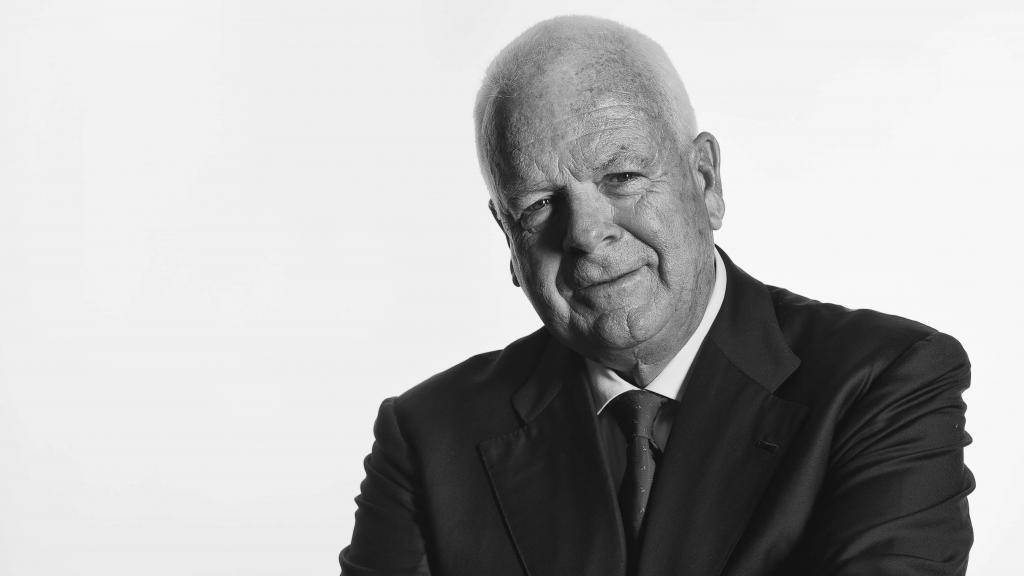
Dear Stakeholders,
I would like to start with from a reflection made during the presentation of the Pianoforte Group's 2021-2024 Business Plan: for the first time in the history of the holding company, out of the five most important and decisive interventions, the majority have been led by women
I start from a reflection made during the presentation of the Pianoforte Group's 2021-2024 Business Plan: for the first time in the history of the holding company, out of the five most important and decisive interventions, no less than three have featured women.
All high-profile interventions presented with rigor, professionalism and logic, but also with the sympathy that is typical of women.
Bitterly, I said to myself that I was realising something deemed exceptional to be an absolutely normal thing, to which we were not accustomed.
In any case, I couldn't help but be satisfied with this turning point that finally marks a real change of pace in planning the future of our brands. Brands which, it is worth remembering, are mostly unequivocably aimed at a female clientele, despite there being a consistent presence of male customers.
In addition, I would like to announce that for the first time, two women have been elected as independent members of the Boards of Directors of Inticom and Kuvera; as an expression of their high and unquestionable professionalism and competence.
With the 2021-2024 Business Plan we have placed people, sustainability and digitalization at the center of our projects, as enabling components of the epochal change we are experiencing in the exit from the pandemic.
The pandemic, which unfortunately we still talk about a lot, has not only brought negative consequences but has acted disproportionately, imposing an exaggerated price in human life and in the quality of our lives; thus serving as a catalyst to push ideas and projects to which until now have been too theorized.
Suddenly, some reference parameters that have accompanied us for decades have changed.
The first example, but also the one that struck me the most, is that today an entrepreneur must know how to dialogue with finance, putting the sustainability projects of his companies in first place whilst strengthening – and at times surpassing – the general attention of financial statements which continue to be the pillar to which projects and new initiatives are based.
It was initially very hard work because changing pace and looking at everything around us with a different eye in order to establish new working methods is very demanding.
In the end, it was like carrying out a revolution that had become necessary in order to uproot old concepts; innovating in depth the same cultural values that have accompanied us up to now, which consequently lead to outlining new methods of approach and development for the tasks assigned to individuals.
While all this is taking shape and continues to charectarize the pace needed to be taken today, and for the near future, we must take note that one of the first issues to be addressed and considered - with ample decision and deep awareness - is that of emerging risks. Among these, I consider as a priority the one related to climate change, a problem we are witnessing - sometimes even as unwitting protagonists - without fully realizing what is happening around us.
As I write these notes, images of hailstones so large and powerful that they smashed through the rear windows and windshields of hundreds of cars parked in a supermarket parking lot in Lombardy are playing on a video. This is one of the many signals we are forced to record in Italy and around the world, as well as other phenomena that occur almost daily, such as glaciers that resize their surface year after year, expanses of plastics that thicken as floating islands in several parts of the oceans; in addition to microplastics which end up initially in fish food, and then enter our own organisms. Average temperatures are rising inexorably and, in the face of these scenarios, already bordering on the apocalyptic. The dates for achieving the goals set for the rebalancing of our environment are shortened.
Important goals are expected for 2030 and then for 2050; we must be an active part of them.
Our commitment must therefore be aimed above all at the reduction of CO2 emissions, and reserving time and attention to the quantification of these emissions in order to put in place measures to start solving this decisive problem for our future.
We must review products and processes, limiting the use of virgin raw materials, as well as minimizing energy and water consumption: we must change our lifestyle and approach to the nature that surrounds us.
All this should take place while respecting and protecting work and the levels of wellbeing achieved so far, however it is essential to rebalance the redistribution of wealth in the world, because we must remember that billions of people still live in situations of social and economic disadvantage.
Are we ready to face the global nature of these problems? We want to make our contribution, in the conviction that many small drops, together, form an ocean.
We will work hard; we will do it with the dedication and application that our values and ethics require of us, whilst making a commitment to verify the stages of this journey every year. We firmly believe that the values of the Pianoforte Group represent the real drive for action and that they will guide the actions of people both today and tomorrow.
Good work to everybody!
Luciano Cimmino
President Pianoforte Group